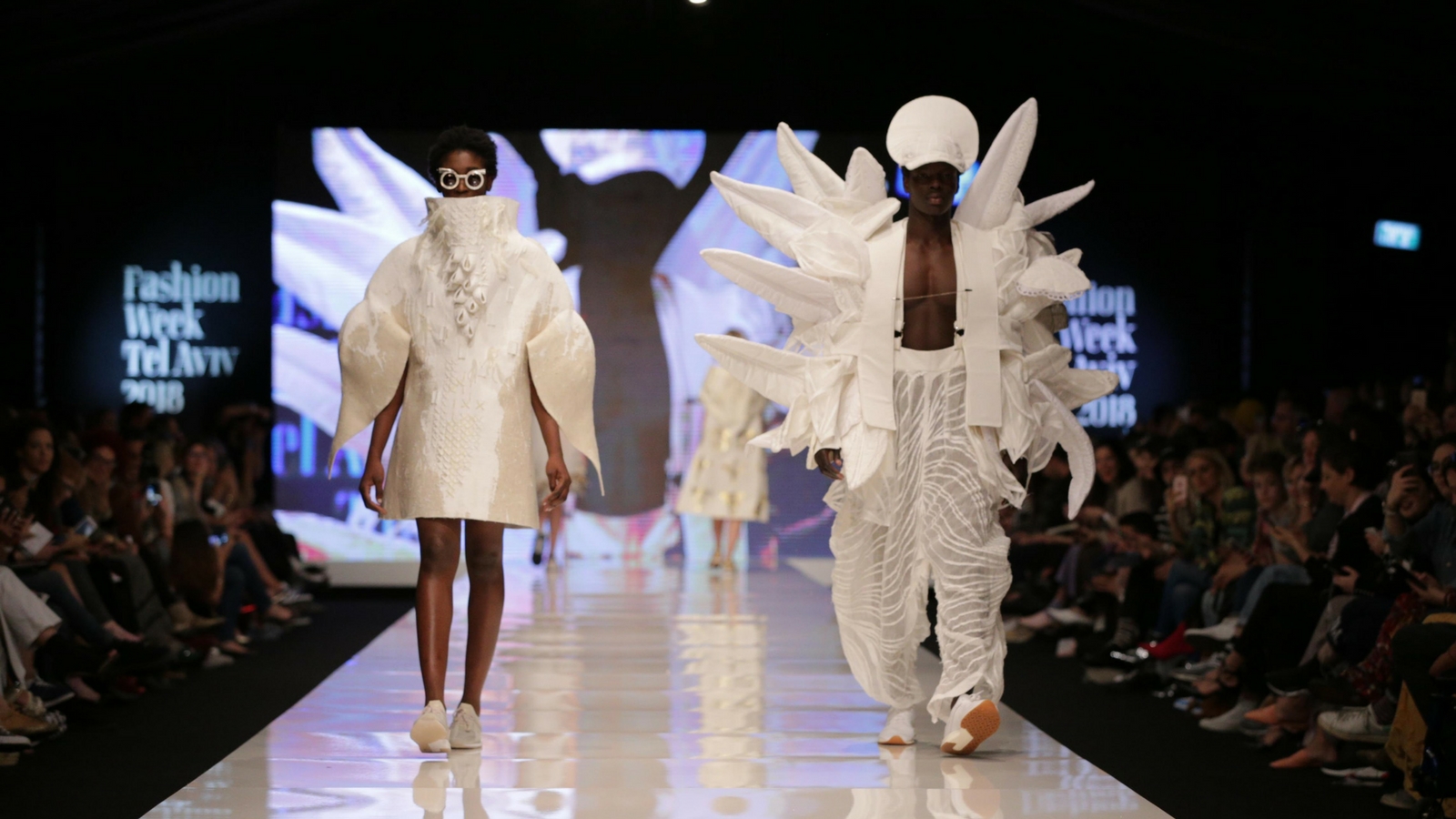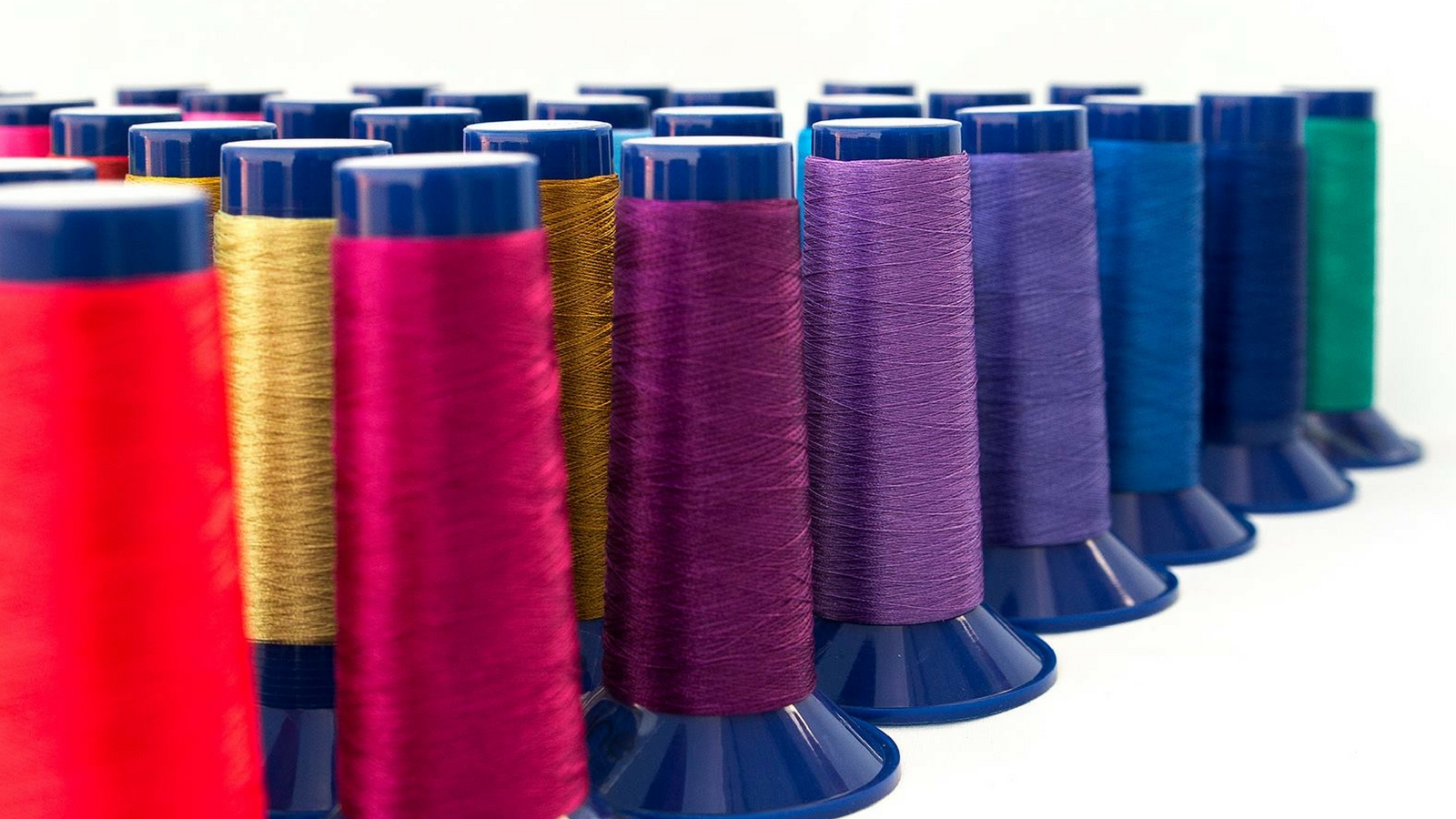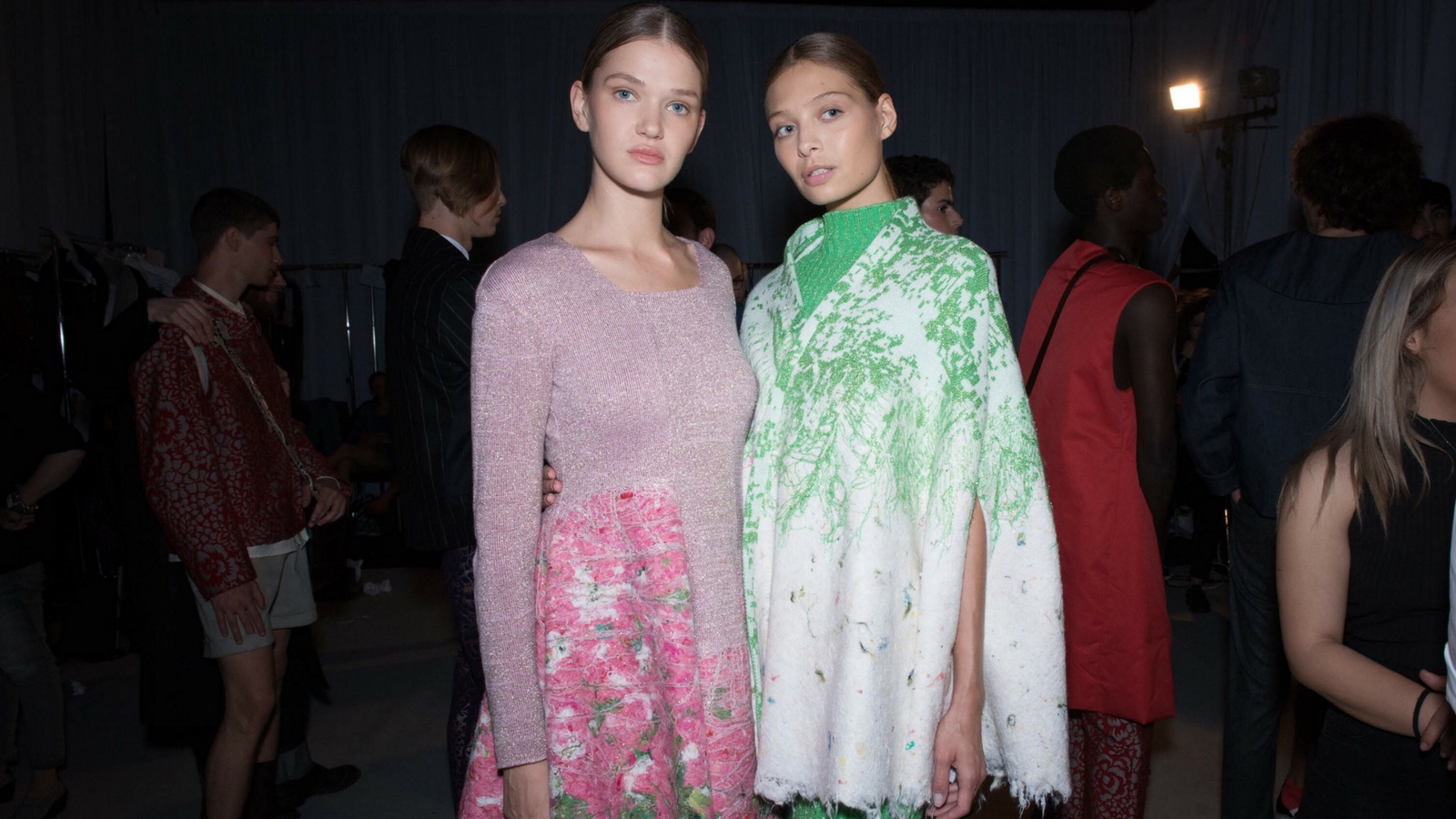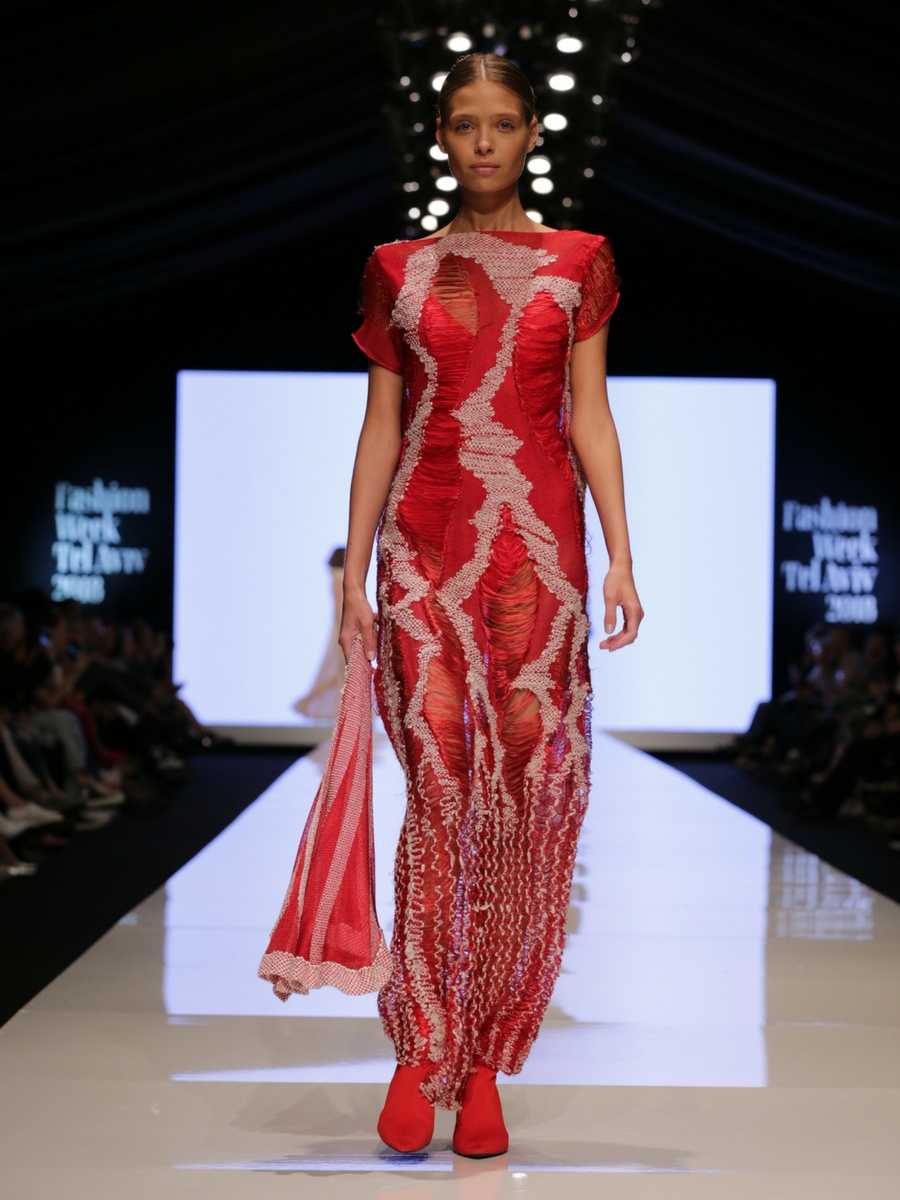When Israeli fashion design student Corali Gat purchased one hundred yards of white fabric for her final project at Shenkar College of Engineering and Design, it wasn’t because she wanted to make white garments – it was because she wanted to transform the blank yardage into something entirely different.
“We don’t have a lot of fabric options to buy [in Israel] so we use technology, digital printing, embroidery, knitting and beading to make materials our own,” Gat told ISRAEL21c.
Her design was presented in the Shenkar show at the sixth annual Tel Aviv Fashion Week, which began March 11.
While Israel is known for its innovations in fields such as technology, health and science, Fashion Week served as a platform to showcase Israeli designers whose innovative mindset often sets them apart in the international market. The three-day event consisted of more than 20 runway shows and several fashion technology events.

Some innovations were more visible, like original textiles made from recycled material and advanced printing techniques; others, like high-tech pattern-making and thread-dying methods, took place behind the scenes.
Here are five innovative technologies and designs ISRAEL21c spotted at Tel Aviv Fashion Week 2018.
- Precise, waterless thread dyeing
Twine Solutions, a Petah Tikva-based startup, is aiming to revolutionize the textile industry with its waste-saving technology.
Treating and dyeing textiles consumes trillions of liters of water globally and pollutes freshwater sources with massive amounts of chemicals, making the textile industry responsible for 20% of the world’s water pollution. While conventional dyeing methods are extremely water intensive, Twine’s system enables on-demand textile thread dyeing in an eco-friendly process that requires no water.

The technology, known as Digital Selective Treatment (DST), continuously dyes a single white thread to any requested length and color, allowing designers to produce only what is needed. This helps eliminate the need for colored thread stock and reduces logistics, deadstock and other waste costs.
Another Twine technology, True Color Capture (TCC), can match the color of any cloth or garment in order to dye the exact color into the thread. Conventional dye-to-match processes can take days and require many trials, whereas TCC produces the precise thread within seconds.
- 3D pattern-making
Designers can perfect their garments before cutting or sewing thanks to made-in-Israel Optitex software that combines 2D design with 3D pattern-making. A partnership between Shenkar and Optitex enables students to update their skills as often as the software updates.
Idit Barak, a senior lecturer at Shenkar, said her students learn to use this 3D-simulating software in order to save fabric from an environmentally conscious point of view, but also “to be a force to be reckoned with in the marketplace.”
“We like to teach advanced technologies so it brings the students into a position where there is more demand for them in the market,” said Leah Perez, head of fashion design department at Shenkar.
“For instance, one of the biggest sourcing companies in the East came to Shenkar and picked six students to start working with them. In the summer, another six will go. One of the reasons is because they know Optitex.”
- Upcycled textiles
Dana Cohen is one of many young Israeli designers with a focus on sustainability and giving new life to old textiles. Cohen collects used fabrics and shreds them to create a soft, felt-like material for her collection of dresses, coats and skirts.

As one of the winners of Israel’s National Lottery competition for emerging designers this year, Cohen showcased her work in the Upcoming Designers show.
“The colors and textures were inspired by NASA aerial photos that show the expansion of cities over agricultural fields,” Cohen told ISRAEL21c. She used five NASA photographs, one of which depicted her father’s own agricultural field in Israel, to guide the pattern of green, red and pink felts.
- Combining old and new techniques
Moriel Dezaldeti developed a textile technique that combines knitting and weaving to create intricately knit garments with unique textures. Her pieces, also shown as part of Fashion Week’s National Lottery show, blur the lines between 3D art objects and clothing.

Northern Star, established in Tel Aviv in 2012 by designer Nadav Rosenberg, uses an innovative approach to fabric that combines modern techniques such as laser cuts, digital embroidery and 3D printing with hand-weaving and other handcrafts. His painterly summer collection was inspired by the work of French artist Bruno Peinado and featured brush strokes, artistic patterns and ruffled textures in a palette of pastels.
- Taking embroidery to new limits
Designer Stav Ofman put an unusual twist on traditional embroidery, which is typically done with threads like wool, silk and linen, by using synthetic hair to create intricate floral patterns and braiding.

The design was inspired by Victorian-era hairwork, a 15th century method of making sentimental jewelry from hair. Ofman’s contemporary interpretation of a wedding dress won first prize in London’s Hand & Lock embroidery competition late last year before being featured in Shenkar’s Fashion Week show.














